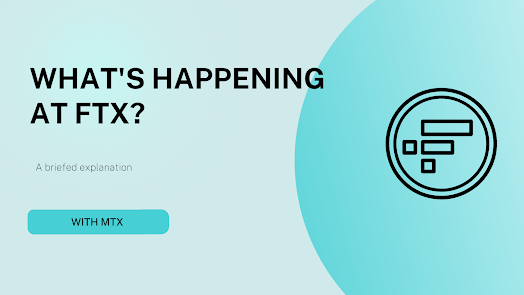Before we go any further, here's a simple example to help you learn more about the decentralised web. At some point in our lives, we have all heard that our information was leaked, sold, or hacked, and nothing could be done to stop it.
Why? Even if it belongs to us, we don't own it. Once our information is online or shared through centralised digital channels, people or companies can do whatever they want with it, which has a direct effect on our everyday lives. For example, the AI could use our data and preferences to show us ads that it thinks are relevant based on what it knows about us.
But what if we really owned all the information about us and could use it however we wanted? We will be able to do this with the help of a decentralised web. Not only will we be able to do this, but we will also be able to trade, transact, communicate, and work better without the help of a government, corporation, or other influencer.
To keep its vision alive, Web3 relies heavily on cryptocurrencies and blockchain. We hear a lot these days about the NFT hype or how some countries are making crypto a legal form of currency. Even though there is no set date for when these might be used, we can still see many companies and platforms building the infrastructure pieces that are important to Web3. For example, Konstellation is a platform that wants to make a decentralised capital market. It also lets different blockchains work together, so you can do transactions between them. It sounds interesting, doesn't it?
Everything we do today, all over the world, is based on money. At the moment, if you want to trade or transact, you need a third party. In the next few years, decentralised finance (DeFi) will be the way of the future, and platforms like Konstellation will help build hubs for DeFi.
How Will Web 3.0 Work in Real Life?
As regular people, we might not have to do much to use Web3. Organizations and platforms like Ethereum and Konstellation will take care of most of the services. If we think about it, it will be like the web version we use now, but it will be more efficient, open-source, trustless, and decentralised.
Take the case of sending money. If you need to send $1,000 to someone in another country or change it into a different currency, the process can take a long time and could cost you money. To finally finish the deal, you have to go through a long process and pay a large fee. Since Web3 will be based on blockchain and cryptocurrency, there will be a direct transfer of funds through borderless, global decentralised applications (dApps) and services. This will make the process quick and cheap.
Web 3.0: Internet of Our Online Future
The way we use language and the things we do shape who we are. We hope that the new age of the Internet will do the same for us. Even though many famous people have different ideas, Web3 is sure to change the way we use the Internet in the future once it is fully operational (currently under development).
Platforms like Konstellation are built on the same ideas and support Web3 to make it easier to use and more popular. There are many changes happening in space, and it will be interesting to see how things turn out for all of us in the days and years to come.



.jpg)

No comments:
Post a Comment